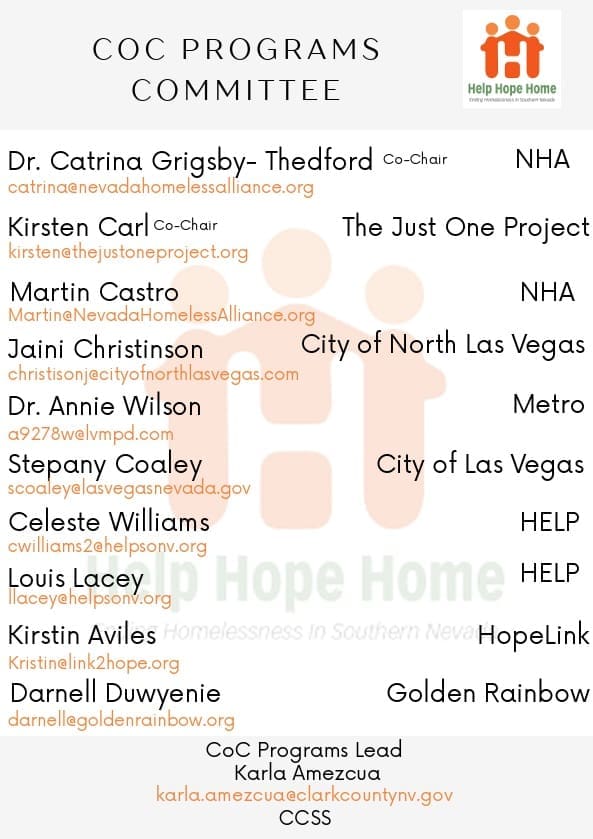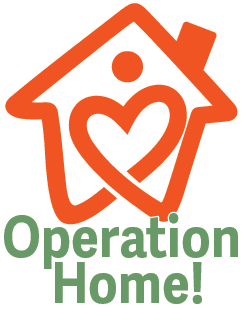Core Committees and Updates
HMIS Steering Committee
The HMIS Steering Committee is responsible for overseeing HMIS governance, evaluation, and coordination with the statewide CoC Steering Committee. It includes representatives nominated by the CoC, the HMIS Lead agency, individuals with lived expertise, marginalized community representatives, and service providers. The Committee advises the HMIS Lead Entity, CoC governing bodies, and providers on homeless service data and HMIS.
Key tasks include:
• Ensure compliance with HEARTH Act and HUD Data Technical Standards.
• Align HMIS operations with the CoC’s mission to make homelessness rare, brief, and non-recurring, which includes coordinating case management, tracking and reporting outcomes, sharing data with stakeholders, identifying service gaps, and supporting federal, state, and local homelessness goals.


CoC Programs Committee
The CoC Program Committee aligns funding and project requirements to offer targeted agency support. Its members, including those with lived experience, marginalized community representatives, and service providers, are nominated from the general membership.
Key tasks include:
• Reviewing data with the HMIS Steering Committee and Governing Board for data-informed decisions.
• Ensuring the annual point-in-time count is HUD-compliant, analyzed, and reported.
• Overseeing ESG coordination and program monitoring, collaborating with ESG teams and the Coordinated Entry Services Committee.
• Leading efforts on funding priorities, application processes, RFPs, and evaluations related to homelessness and ESG.
• Managing time-limited Rank and Review groups for PIT coordination and communication.
• Coordinating with core committees on system coordination, gap analysis, consolidated plans, discharge planning, governance updates, and capacity building, with findings reported to the Governing Board.
• The Committee also identifies training needs, sets performance targets, and promotes equity in service delivery.
Coordinated Services Committee
The Coordinated Services Committee ensures person-centered service delivery and compliance with HUD Coordinated Entry requirements across the service continuum. The CoC will nominate members, including those with lived experience, marginalized community representatives, and service providers, with at least 51% being direct service providers or those with lived experience.
Key tasks include:
• Reviewing and suggesting policy changes to improve access points and service delivery for underserved individuals.
• Collaborating with the Coordinated Entry Lead to enhance local crisis response systems and resource accessibility.
• Ensuring consistent Housing Problem Solving and person-centered practices across all access points.
• Coordinating with core committees on system coordination, gap analysis, consolidated plans, discharge planning, governance updates, and capacity building, and reporting to the Governing Board.
• Overseeing emergency shelter functions and provider coordination.
• Maintaining a Learning Collaborative for all providers within the continuum.



